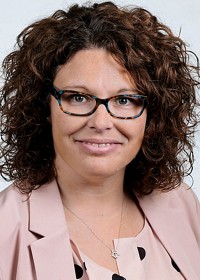Advertisement
Grab your lab coat. Let's get started
Welcome!
Welcome!
Create an account below to get 6 C&EN articles per month, receive newsletters and more - all free.
It seems this is your first time logging in online. Please enter the following information to continue.
As an ACS member you automatically get access to this site. All we need is few more details to create your reading experience.
Not you? Sign in with a different account.
Not you? Sign in with a different account.
ERROR 1
ERROR 1
ERROR 2
ERROR 2
ERROR 2
ERROR 2
ERROR 2
Password and Confirm password must match.
If you have an ACS member number, please enter it here so we can link this account to your membership. (optional)
ERROR 2
ACS values your privacy. By submitting your information, you are gaining access to C&EN and subscribing to our weekly newsletter. We use the information you provide to make your reading experience better, and we will never sell your data to third party members.
Safety
Ethics
by David J. Chesney
July 11, 2011
| A version of this story appeared in
Volume 89, Issue 28
The Ethics Committee met in Anaheim and discussed several topics. One item concerned the language used by Chemical Abstracts Service (CAS) in its licensing agreements with university libraries for SciFinder Scholar. The committee expressed concern to CAS that the switch to digital content delivery that many university libraries have undertaken has precluded access to the scientific literature by nonacademic users in surrounding communities. This issue arose because the SciFinder Scholar contract expressly allows access only by faculty, staff, and students at the subscribing institution. The committee emphasized that its concern was noncommercial use by community members. After discussion, a change was mutually agreed upon in the SciFinder Scholar license to say “noncommercial use,” thus allowing for walk-in access to the chemical literature by interested community members.
A working group has been created to explore the feasibility of the committee applying for National Science Foundation funding to develop video case studies specific to chemistry. The working group will report back to the committee in Denver.
The Ethics Committee was involved in organizing two symposia at the Anaheim meeting. The first, sponsored by the Division of Chemical Health & Safety, was titled “What Does a Good Safety Program Look Like?” The second was “The Ethics of Publishing,” sponsored by the Division of Chemical Education.



Join the conversation
Contact the reporter
Submit a Letter to the Editor for publication
Engage with us on Twitter